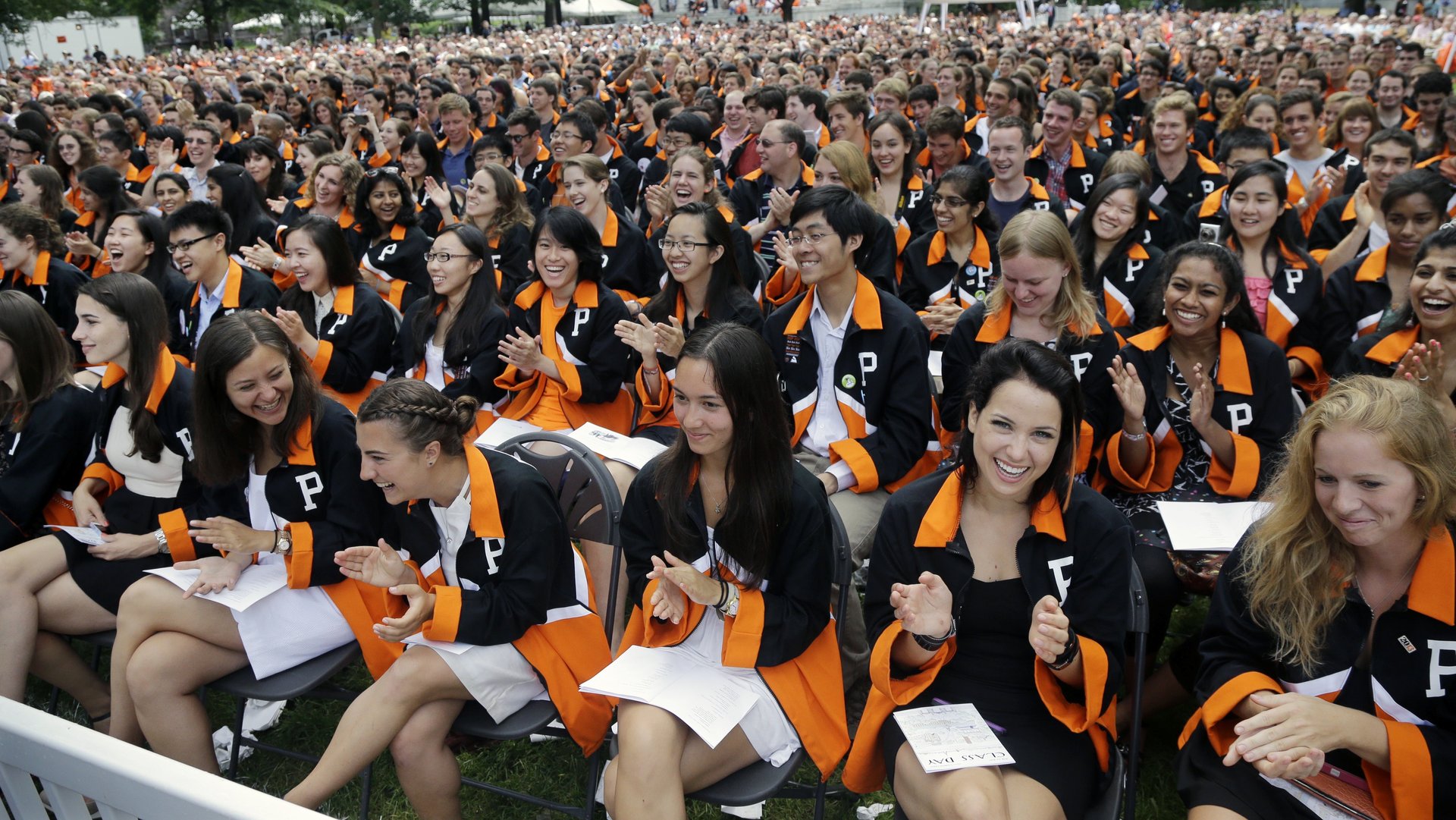Princeton is giving up ground in its fight against grade inflation
Princeton University faculty voted to end their practice of grade deflation, bowing to concerns that it creates a negative campus atmosphere and can be a turnoff for applicants to the school. For the past 10 years, each department had been asked to give A’s to no more than 35% of course work—the intent was to create uniformity in grading standards across campus, and to combat the grade inflation that has seeped into American universities, especially Ivy Leagues, in the last 50 years.


Princeton University faculty voted to end their practice of grade deflation, bowing to concerns that it creates a negative campus atmosphere and can be a turnoff for applicants to the school. For the past 10 years, each department had been asked to give A’s to no more than 35% of course work—the intent was to create uniformity in grading standards across campus, and to combat the grade inflation that has seeped into American universities, especially Ivy Leagues, in the last 50 years.
Princeton adopted the recommendations (pdf) from a committee formed last October to examine the policy. While the group did not find overwhelming evidence that grade deflation hurts graduates’ prospects in the work force, it determined the caps generate unnecessary stress for students. (Both had been of significant concern on campus.) Now, each department will be responsible for developing its own grading standards.
“I think (and hope) that the main effect will be improved quality of feedback for our students, and a better academic environment on campus,” Princeton engineering professor Clancy Rowley, who chaired the committee, told Quartz in an email.
Rowley predicts that grade point averages and instances of A grades will rise some, but he doesn’t expect anything like the grade inflation trend of the past—at Princeton, the portion of A grades rose from 30% to 48% from 1974 until 2003, then fell sharply in the 2005 academic year, when the new policy went into effect. As Rowley notes, grade distributions “will continue to be monitored by the Committee on Examinations and Standing and the dean of the college, and faculty will still receive reports detailing their own individual grade distributions, and comparisons with those in their department and the university as a whole.”
Opponents of grade inflation argue that a preponderance of A’s signals weak judgment of actual academic performance. But the expectation of good grades can make a school more appealing to prospective students—and make it difficult for instructors to fight the tide of complaints when they get stingier with A grades.
Princeton, though perhaps the most high-profile, is not the only university to have tried combatting the national grade inflation trend with a formal grading policy—Wellesley College, a private women’s college, requires that the average grade in most courses should be no higher than a B+. The policy, while effective in lowering the likelihood of earning an A, also was recently found to result in lower student ratings for professors and exacerbate race-based performance gaps.